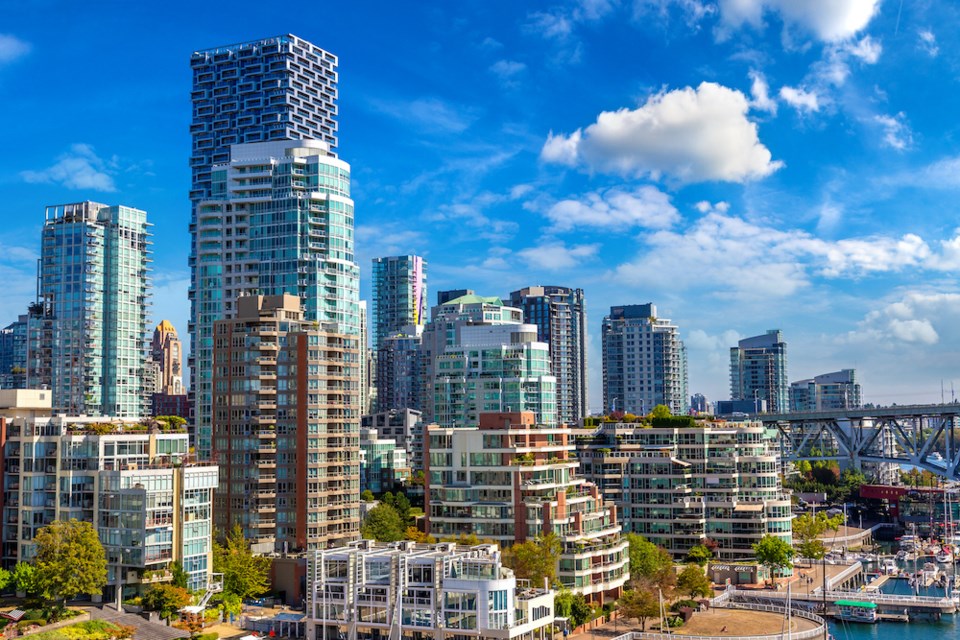A federal budget announcement, both in its size and scope, has a lot in common with Oprah Winfrey’s infamous proclamation that everyone in her studio audience gets a car.
It’s a big promise with a nice touch, but still a singular, massive announcement just the same.
But does everyone get a car? What kind of car? What colour is it? When will you get the car and is it the best type of car suited for you?
As CEO of the BC Non-Profit Housing Association, Jill Atkey is keenly tuned into the finer points within the spending announcements and promises made in the April 7 document.
She spoke to Vancouver Is Awesome to break down winners and losers, the good, bad and the ugly and who exactly gets Oprah’s metaphorical car with respect to housing commitments.
And with more than $10 billion earmarked for housing over the next five years, there is plenty to dig into.
What housing items are included in the new federal budget?
Perhaps the biggest ticket item is the creation of a $4-billion Housing Accelerator Fund. It will be run by the Canada Mortgage and Housing Corp. (CMHC), with the goal of creating 100,000 net new housing units over the next five years.
“That will see new supply being built,” Atkey said. “We’re hoping that it’s going to incentivize the right kinds of supply – affordable rental for example, or even market rental. That’s our hope, but there’s no certainty around that yet.”
Atkey’s second budget win is the announcement of a new Co-operative Housing Development Program, which promises $500 million in funding and $1 billion in loans.
The program is intended to kickstart 6,000 new homes in the next five years and, according to Atkey, the most notable investment made in co-op housing in more than three decades.
“That’s significant because there is huge demand for co-ops,” Atkey said. “It provides pretty affordable housing and people have an ownership stake through the shares that they purchase, so it’s a really secure form of housing for people who are not going to be able to buy a condo or a home. That’s a huge win.”
Budget holds some iffy or problematic propositions
The budget calls for the creation of a new Tax-Free First Home Savings Account (TFFHSA), an announcement that Atkey views as a mixed bag.
The aim is to help those struggling to get into the housing market save for the cost of a down payment: $8,000 per year to a maximum of $40,000 per person towards the purchase of a first home.
“That’s going to appeal to younger voters for sure, but the challenge with those kinds of programs is that it actually induces demand and actually drives up demand for homeownership,” Atkey said. “The reality in our major urban centres right now is that unless you’ve got help from mom and dad, that intergenerational wealth transfer, you’re unlikely to be able to save enough and fast enough to keep up with the rising home prices.”
The two-year window banning foreigners from the housing market, according to Atkey, is both too little, too late and lacking focus. She argues that the province has implemented enough legislation in recent years to cool off the influx of foreign cash and that the new property bidding wars feature different players than those found offshore.
“I don’t think it’s going to have the desired effect that the federal government is hoping for,” Atkey said. “Most of our investor demand at this point - because of how much equity people have in their homes - is actually local demand; it’s your neighbour or the person down the street who owns two, three or four homes in the province.”
Taxing the value that people have in those properties is another big miss on the part of the feds, according to Atkey.
Better tax strategies needed
She supports a surtax similar to the one floated in January by UBC public policy professor Paul Kershaw, who suggested taxing the 10 per cent of Canadians whose homes are assessed at more than $1 million annually.
That surtax would ding homeowners on a sliding scale of between 0.2 to one per cent annually: a $1.2 million home would owe $400, while a $1.5 million home would pay $1,000, for example.
Atkey also backs a re-think on the federal government’s current exemption of capital gains tax on principal residences.
“They’re not willing to go there, but they should be,” Atkey said. “Unless we shift our mind frame around that kind of wealth that is now fuelling generational wealth inequality that’s pretty skewed in places and continues to create these divisions, we’re setting up future generations for a really tough road ahead.”



